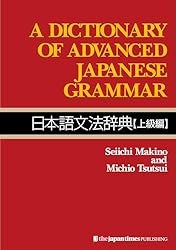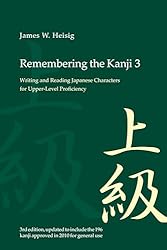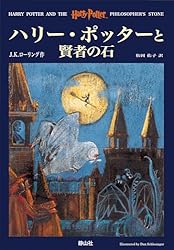At this level of Japanese, you are on your way to attain complete fluency in both speaking and reading Japanese, and you can write a fair share of kanji too. At this level you should already know how to:
- Read at least 2,000 kanji
- Hold conversations with native speakers in difficult topics
- Have no problems “ad libbing” in conversations (know how to describe things that you don’t know the specific word for)
- Understand most movies or TV shows with no English subtitles
1. Dictionary of Advanced Japanese Grammar (Japanese Version)

The third book of the series. This reference is for serious learners of the language. It will provide you with insights to advanced grammar usage and nuances that other books don’t go into detail about. At this level, these little insights are invaluable.
The one negative about this dictionary is that it isn’t as easy to use as the first two volumes. But this is probably partly due to the fact that the material is much more difficult that the previous volumes.
If you want to perfect your grammar at the highest levels, this book will give you the tools to do so.
At a Glance:
Pros:
- Very useful to gain insight into advanced grammar patters
- Details on nuances and usage of grammar is invaluable
- Helps you to learn and understand difficult grammar patterns
Cons:
- Can be a little hard to navigate through since it is not as user-friendly as the previous two volumes.
Buy it from Amazon here: A Dictionary of Advanced Japanese Grammar (Japanese Edition)
2. Remembering the Kanji 3: Writing and Reading the Japanese Characters for Upper-Level Proficiency

If you went through and studied all of the kanji in both Remembering the Kanji 1 and 2, then this book is what you need to take your kanji to another level.
If you master all of the 2,136 jouyou kanji characters, you’ll be able to read most high school level books and material. However, if you want to be able to read advanced high school/college level material, you will need to learn more kanji.
Remembering the kanji 3 (3rd updated edition) teaches you 800 new kanji. If you studied all 3 of the books in the series, you will have master 3,000 kanji characters. There are characters in Remembering the Kanji 3 that some Japanese people might not even know. Having knowing of these characters is both useful for reading advanced material, as well as being impressive to native Japanese speakers.
At a Glance:
Pros:
- Learn advanced kanji that are the most frequently used
- Takes your reading to another level, which will help you to improve in all other areas as well.
Cons:
- Not as user-friendly and good as the Remembering the Kanji 1 book
Buy it from Amazon here: Remembering the Kanji 3: Writing and Reading the Japanese Characters for Upper-Level Proficiency
Books to Read
At this point, you should know thousands of kanji, vocabulary, and the most common grammar used by native speakers. If you were to study more advanced words and characters on their own, it would be EXTREMELY boring.
So the best way to learn natural, and more advanced Japanese is by reading.
I say you should read books, but what I really mean is you should STUDY books as you read. If you just passively read though a novel, you won’t pick up too many new things.
Instead, really pay attention to how the writer uses words to express meaning. Take notice of how sentences are worded and how meanings are conveyed though the text.
You’ll also run into kanji and words you probably don’t know. Write them down on a separate sheet of paper (or computer, iPad, etc.) so you can study them later. This will increase your Japanese skills a lot.
Unfortunately, it is very difficult to find hard copies of books written in Japanese outside of Japan. The best way to get Japanese novels, manga, and books are by reading them on a Kindle.
If you don’t have a Kindle, the newest model is the Amazon Kindle Oasis, but it’s hard to beat the older Kindle Voyage. The Voyage has the same display resolution (300ppi), and has a long battery life (enough for even heavy readers) but is much cheaper than the Oasis.
Of course manga can be very helpful learning causal Japanese. But novels can teach you both informal and formal Japanese, as well as how to understand and use subtle meanings in the language.
A good way to start reading Japanese books is to first read a book that has been translated from English.
3. Harry Potter Series in Japanese

For example, a very good book to read are the Harry Potter series. They are not only fun to read, but they are not that difficult to get through. In addition to this, you can also buy the English version, and use it as an instant translation that you can refer to anytime you have difficulties understanding the text. If you have a Kindle, you can purchase the bundle of all 7 Japanese edition Harry Potter books from Amazon.
In general, books that are easy to read in English make for good books to read in translated Japanese. Books by Nicholas Sparks are a good choice as well if you are into romance novels.
If these books are too difficult for you, check out the books in the low-advanced level page.
4. Japanese Newspapers

The ultimate test of your Japanese skills is the newspaper. If you can read and understand a Japanese paper with no problems, congratulations. You can now do something that even some high school students in Japan can’t do.
Japanese newspapers are a mix of some simple Japanese, and some very difficult kanji and vocabulary. You could pay to get a Japanese newspaper sent to you, but it would be expensive. The good news is that you can read a lot of Japanese articles online for free.


Hello Jack!
I’m searching for advanced Japanese conversation books. Not beginner’s book like meetings and greetings, the one thats really useful in daily life and work. I just started to live and work in japan. So, my biggest challenge is to speak like a native Japanese.
I really appreciate your help. Arigatou gozaimasu!
Hi, Jack! I totally agree that reading is the best way to advance when learning a language. However, I am surprised you didn’t mention Read Real Japanese Fiction. It’s a great book with real Japanese short stories that are fun to read and comes with grammar explanations so you are not left in the dark (no matter what your level).
Hi there! Yup Read Real Japanese Fiction is a great book. I recommended that book for advanced students as a good intro into reading high level Japanese. You can check that out here: Top Books for Low-Advanced Japanese Students
hello jack
what the best sites for JLPT N2 ?
Hi!
What kind of sites are you looking for? Information about the JLPT N2 grammar, vocab,etc, or sites to help you study for the test?